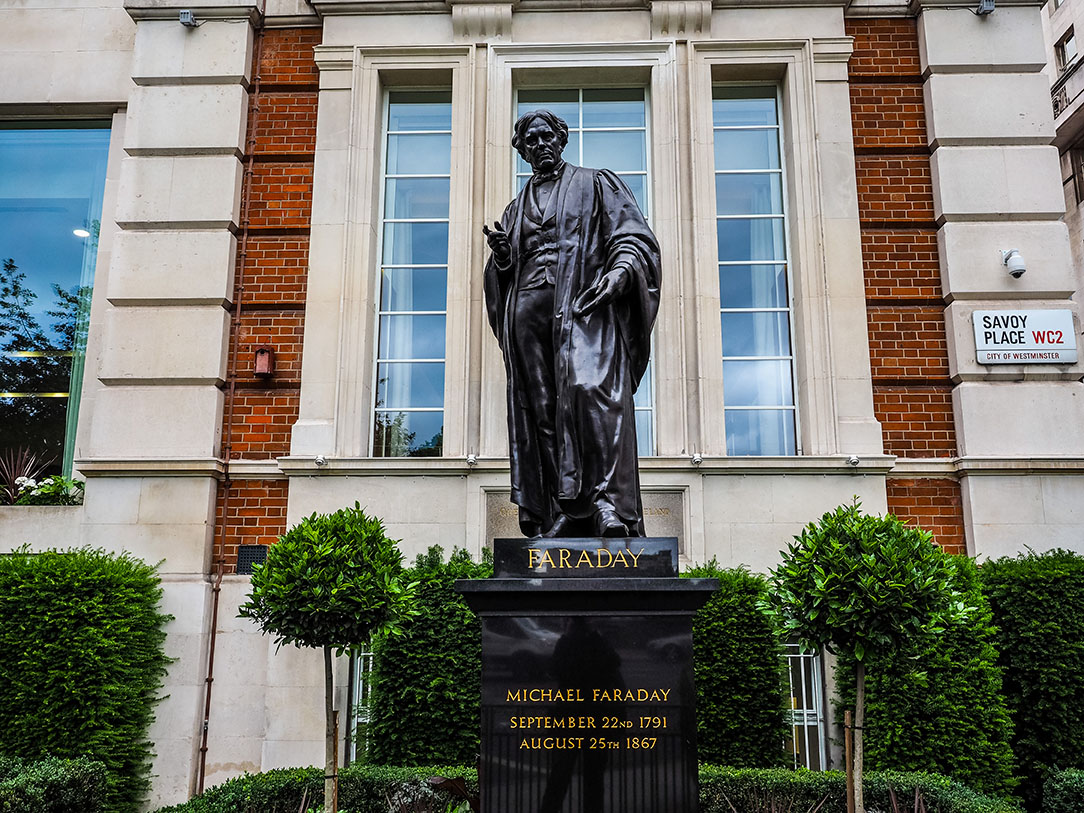

Michael Faraday was an English scientist who lived from 1791 to 1867. He is best known for his work on electromagnetism, which is the study of the relationship between electricity and magnetism.
Faraday was born in London, England, into a poor family. He had little formal education, but he was very curious about science and loved to read books about it.
Faraday started working as an apprentice bookbinder when he was 14 years old. He continued to study science on his own, and eventually, he was hired as a laboratory assistant to a chemist named Humphry Davy.
Faraday worked with Davy for several years, and he learned a lot about chemistry and electromagnetism. In 1831, he made his most important discovery: he showed that a changing magnetic field can induce an electric current. This discovery is the basis of many modern technologies, including generators, transformers, and motors.
Faraday also made important contributions to the study of electricity and magnetism, including the invention of the first electric motor and the discovery of electromagnetic induction. He also developed the concept of lines of force, which is a way of visualizing magnetic fields.
Faraday was a member of the Royal Society of London, so he is often referred to by his full name and the initials of the society.

Michael Faraday is a proper noun, so it does not have different forms like the word "method.
The name "Michael" is a biblical name that comes from the Hebrew name "Mikha'el", which means "who is like God?". The name "Faraday" is of uncertain origin, but it may be derived from the Old English word "fearad", which means "journey".
What is Michael Farraday famous for?
Question:
Describe the contributions of Michael Faraday to the field of science and his impact on the understanding of electromagnetism.
Answer:
Michael Faraday was a pioneering scientist whose contributions revolutionised the field of electromagnetism and laid the foundation for modern physics. Born in 1791, Faraday's work greatly influenced our understanding of the relationship between electricity and magnetism.
One of Faraday's significant contributions was his discovery of electromagnetic induction. Through a series of experiments, he demonstrated that a changing magnetic field induces an electric current in a nearby conductor. This discovery led to the development of generators and transformers, forming the basis of modern electrical power generation and transmission systems.
Faraday's laws of electrolysis also contributed to our understanding of the relationship between electricity and chemical reactions. His work on electrochemistry laid the groundwork for various applications in industries such as metallurgy and electroplating.
Furthermore, Faraday's visionary thinking led to the formulation of field theory, which introduced the concept of lines of force to represent electric and magnetic fields. This concept proved crucial in understanding the behaviour of charged particles in electromagnetic fields.
Address
Developing Experts Limited
Exchange Street Buildings
35-37 Exchange Street
Norwich
NR2 1DP
UK
Phone
01603 273515
Email
hello@developingexperts.com
Copyright 2025 Developing Experts, All rights reserved.